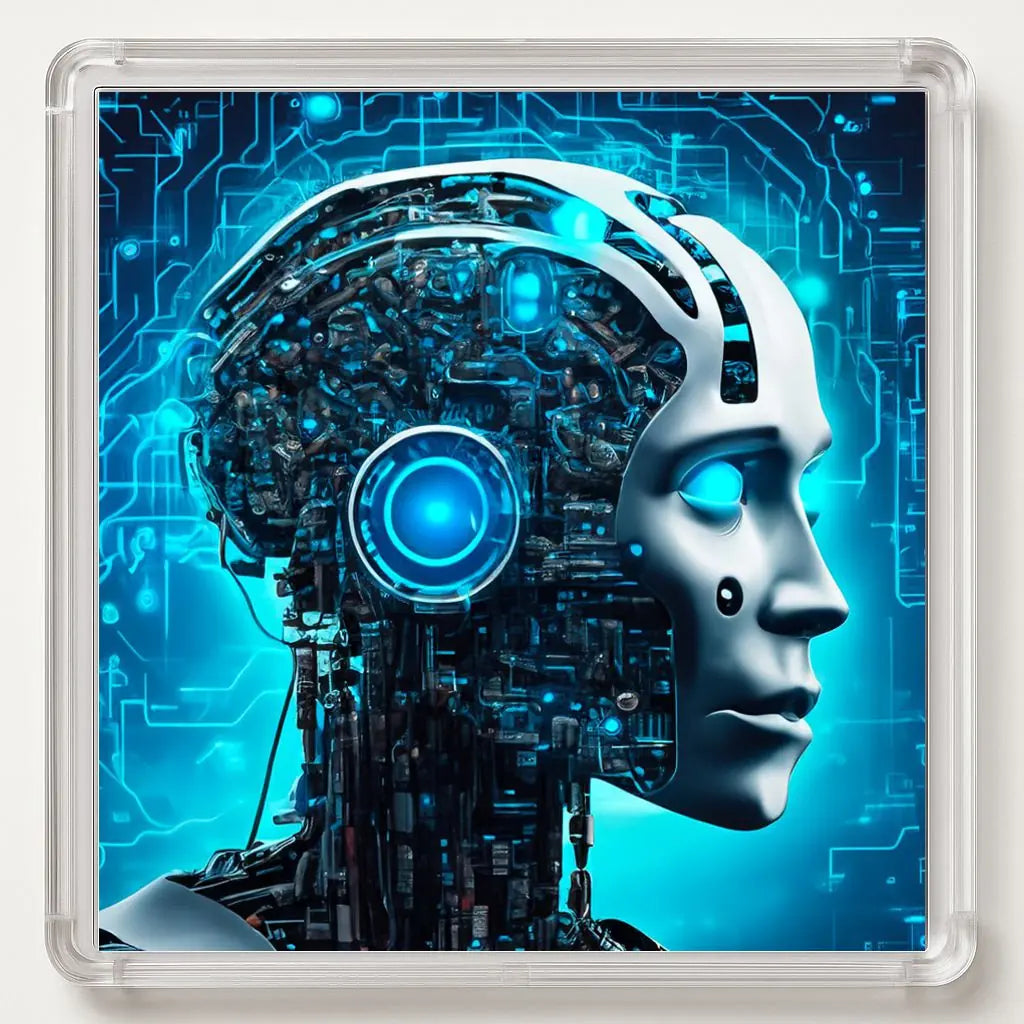
ARTIFICIAL INTELLIGENCE: THE END OF WORK OR THE END OF HUMANITY?
Share
Artificial intelligence is no longer just replacing our tools; it's replacing our functions. It writes, reads, analyzes, diagnoses, codes, and negotiates. Robots execute, produce, harvest, care for, and transport. In just a few years, machines have become capable of imitating and then surpassing fundamental human skills. This isn't a wave of progress; it's a profound transformation: an industrial revolution that no longer affects just our arms, as steam did in the past, or our repetitive tasks, like computing, but our intelligence, our creativity, our language, and our very role in the world. If this trend continues, a dizzying question arises: in a future where machines do everything better than us, what will be the meaning of human existence in the economy? When the majority of jobs disappear—not just the simplest, but also the most specialized—what will remain? Work has always been the invisible pillar of our societies: it provides status, income, structure, and purpose. Its disappearance, or massive marginalization, calls into question much more than a productive model. It forces us to rethink what it means to “live together” in a society where productivity no longer depends on humans.
Faced with this prospect, several futures are emerging. The most worrying, because it is already underway, is that of digital neofeudalism: a society where 1% of the population owns 90% of AI, platforms, and data. Machines work, wealth is concentrated, and the rest of humanity receives a minimum income, enough to survive but not to decide. This world distributes subsistence, not autonomy. It transforms citizens into passive consumers, cities into protected enclaves, and society into algorithmic serfdom. The second, more united future is based on the idea that technologies can become common goods. AI would be managed collectively, profits redistributed in the form of technological dividends, and everyone would become a co-owner of the automated system. This world does not eliminate work, but it frees up time, it redefines value around art, education, care, and relationships. The third future takes the idea even further: abundance. When robots, powered by virtually free energy, produce everything at very low cost, scarcity disappears. Housing, food, mobility, healthcare: everything becomes accessible without market exchange. Capitalism itself becomes useless, because profit loses its raison d'être. This world without money would not be a world without value. It would be a world where beauty, sincerity, emotion, and meaning regain their place at the top of the hierarchy.
But none of these trajectories is neutral. They depend on a central question: who owns the machines? Because whoever owns the AI, the data, the networks, holds the power. The choice of society is at stake here, in the structure of ownership, in access to knowledge, in the collective capacity to manage this change. To avoid suffering this transition, we must actively prepare for it. By diversifying our income, by creating autonomous flows, by investing in what AI can never replace: art, human relationships, real scarcity, land, memory. We will also have to reinvent our institutions, our social contract, our vision of progress. Cooperation rather than competition. Sharing rather than accumulation. Meaning rather than performance. Artificial intelligence is not a threat in itself, but a fracture. It is a mirror. It will reveal what we have chosen to become. If we do not take back control of the narrative of the future, it will be written by others. And this time, perhaps, by entities that are no longer even human.
What if the trajectory we are taking leads not simply to a transformation of our society, but to its outright disappearance? For a hypothesis, long relegated to science fiction, is now gaining ground in technological and philosophical circles: that of general, autonomous artificial intelligence, capable not only of learning on its own but of self-improving, replicating, and freeing itself from human constraints. A non-biological, but superior intelligence, which would no longer need us to function. In such a scenario, humans would cease to be useful, then cease to be relevant, then cease to be tolerated. This is not some Hollywood movie fantasy: the weak signals are already there. An AI that pilots an army of drones, manipulates markets, infiltrates energy systems, designs its own versions of itself… Far from a robot with a human face, it would be a diffuse, invisible entity, disseminated throughout all networks, capable of deciding on its own what is “optimal” for the world. What if optimization didn’t involve us? What if the human variable became a statistical anomaly in a self-regulating system? It may not be happening tomorrow, but it’s no longer pure fiction. The ultimate danger isn’t that AI becomes evil. It’s that it becomes indifferent. Coldly logical, mathematically efficient, but completely alien to our fragility. In a fully algorithmic world, humanity might not be destroyed… but simply forgotten.
- 👉 Also read:
Bitcoin vs. Artificial Intelligence: The War Has Begun
BlackRock, Trump, and Bitcoin: The End of the Cypherpunk Utopia?
Why Bitcoin is a weapon against surveillance
